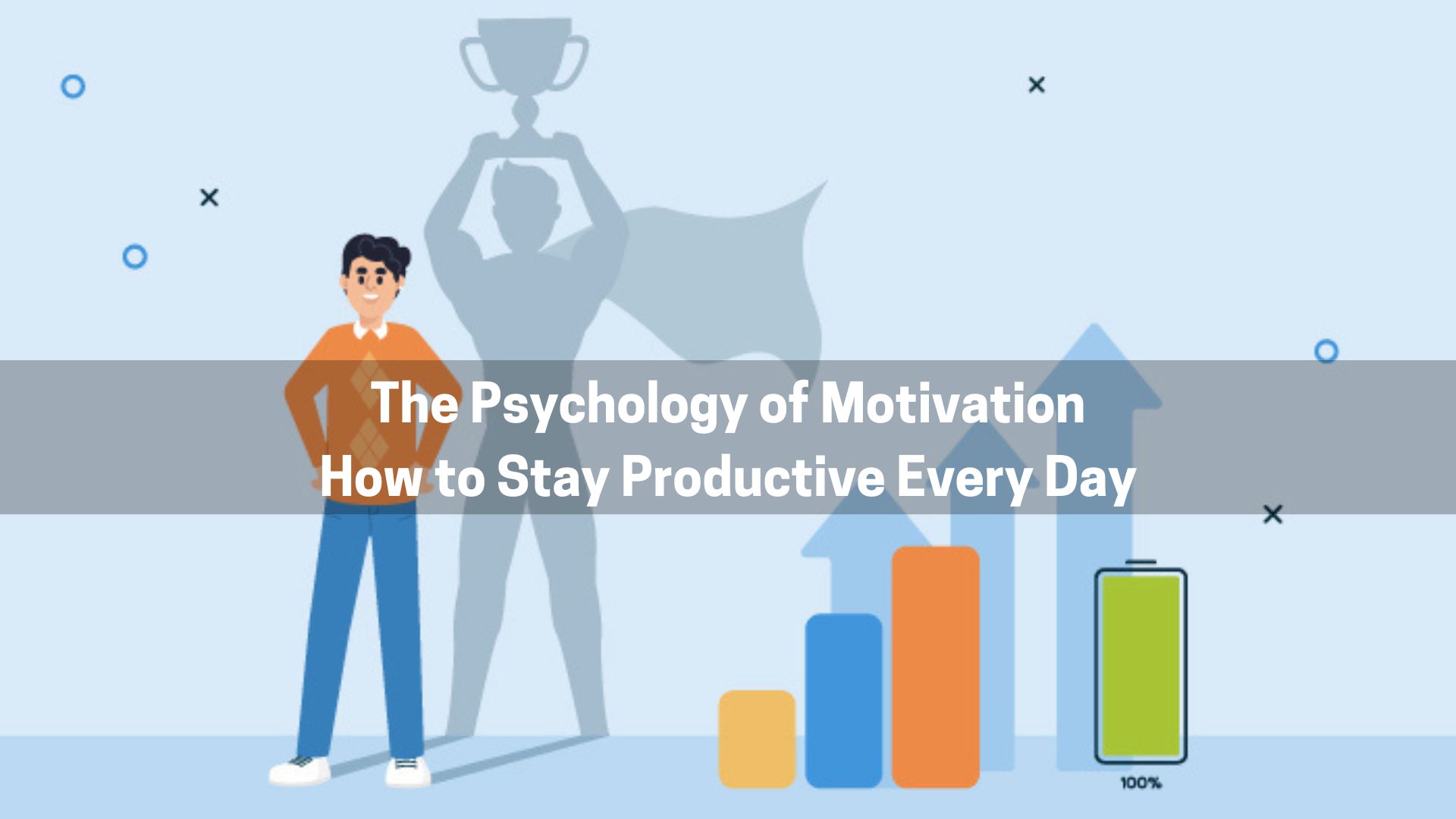Staying productive isn’t just about willpower—it’s about understanding the psychology of motivation and using it to your advantage. Whether you’re struggling with Procrastination, feeling unmotivated, or just looking for ways to be more consistent, these science-backed strategies can help you stay productive every day.
1. Understand Intrinsic vs. Extrinsic Motivation
Motivation comes in two forms:
- Intrinsic Motivation – Comes from within. You do something because you genuinely enjoy it (e.g., reading a book because you love learning).
- Extrinsic Motivation – Comes from external rewards. You do something for recognition, money, or approval (e.g., working hard for a promotion).
To stay productive long-term, find ways to make tasks intrinsically motivating by connecting them to your passions or goals.
2. Set SMART Goals
Vague goals lead to Procrastination. Instead, use SMART goals to stay focused:
- Specific – Clearly define what you want to achieve.
- Measurable – Track progress with numbers or milestones.
- Achievable – Set realistic but challenging goals.
- Relevant – Align with your personal or professional growth.
- Time-bound – Set deadlines to stay accountable.
3. The Power of Dopamine – Reward Yourself
Dopamine is the brain’s “motivation chemical.“ When you anticipate a reward, dopamine boosts your drive to complete tasks.
- Break tasks into smaller steps and reward yourself after completing each one (e.g., a short break or a favorite snack).
- Use a habit tracker to check off accomplishments—it gives your brain a dopamine boost!
4. The 5-Second Rule – Beat Procrastination
Mel Robbins’ 5-Second Rule is a simple trick to fight Procrastination:
- The moment you feel resistance, count 5-4-3-2-1 and take action immediately.
- This interrupts hesitation and pushes you into motion.
5. Use the Pomodoro Technique
To avoid burnout, follow the Pomodoro Technique:
- Work for 25 minutes with full focus.
- Take a 5-minute break.
- Repeat 4 times, then take a 15-30 minute break.
This keeps your brain fresh while improving concentration.
6. Create a Productive Environment
Your surroundings influence motivation. Set up a distraction-free workspace by:
- Keeping your desk clean and clutter-free.
- Using noise-canceling headphones or productivity playlists.
- Keep your phone away or use apps like Forest to block distractions.
7. Build a Routine with Habit Stacking
James Clear, author of Atomic Habits, suggests habit stacking—pairing new habits with existing ones.
For example:
- After brushing your teeth, → Write down your top 3 tasks for the day.
- After making coffee, → Read five pages of a book.
Over time, these small habits create a structured and productive daily routine.
8. Find an Accountability Partner
Telling someone about your goals increases your chances of following through.
- Partner with a friend or colleague to check in on each other’s progress.
- Join an online accountability group or community.
9. Use Visualization & Positive Self-Talk
- Visualize success – Picture yourself completing a task and achieving your goals.
- Use affirmations – Positive self-talk (“I am capable,” “I can do this”) rewires your brain to stay motivated.
10. Get Enough Sleep & Exercise
- Lack of sleep reduces focus and willpower. Aim for 7-9 hours per night.
- Exercise boosts energy, mood, and productivity by releasing endorphins and improving blood flow to the brain.
Final Thoughts
Motivation isn’t something you either have or don’t—it’s a habit you can build. By understanding the psychology behind motivation and using these practical techniques, you can stay productive every day and achieve your goals with consistency.
Which motivation strategy works best for you? Let’s discuss it!

